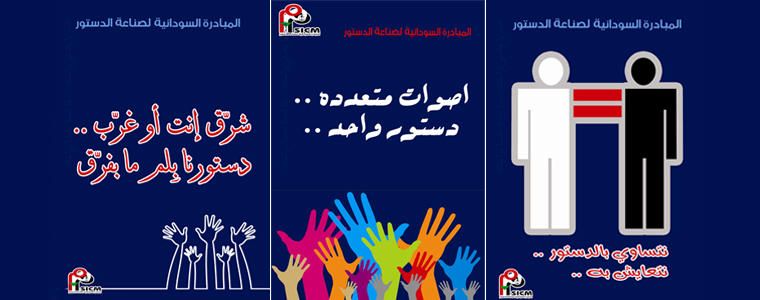Founded in March 2011, SICM is a network of approximately 40 Sudanese NGOs dedicated to educating the Sudanese people on the importance of constitutions and constitution making, and advocating for a transparent, inclusive, and participatory constitution-making process that reflects the diversity of Sudan and leads to a constitution based on democracy, equality, citizenship, social and economic justice and fundamental human rights.

USIP supports the Sudanese Initiative for Constitution Making (SICM). Founded in March 2011, SICM is a network of approximately 40 Sudanese NGOs dedicated to educating the Sudanese people on the importance of constitutions and constitution making, and advocating for a transparent, inclusive, and participatory constitution-making process that reflects the diversity of Sudan and leads to a constitution based on democracy, equality, citizenship, social and economic justice and fundamental human rights. SICM’s network spreads throughout the country, with focal points and partners in each of Sudan’s 18 states.
Through educational workshops conducted throughout Sudan, media advocacy, and meetings and workshops with Sudanese officials, party leaders, and policy-makers, SICM has spread its message of the importance of an inclusive, participatory and transparent constitution making process and the benefits such a process could yield for the Sudanese people. SICM publishes a weekly page in two Arabic speaking newspapers (AL Sahafa and Al-Ayam) and the Sudan Vision Newspaper (English).
Recent issues of SICM’s page:
- January 20
- January 27
- February 3
- March 10
- March 17
In addition to its civic education, outreach, and advocacy efforts, SICM – in collaboration with other Sudanese NGOs—has developed a “Declaration of Constitutional Principles” and “A Roadmap for the Constitution Making Process.” The documents are meant to reflect civil society’s vision for constitution making in Sudan, and have already been published in the Sudanese press, as well as utilized in civic education workshops and as advocacy tools with government officials and other policy makers.
<< Back to Constitution Making in Sudan and South Sudan




